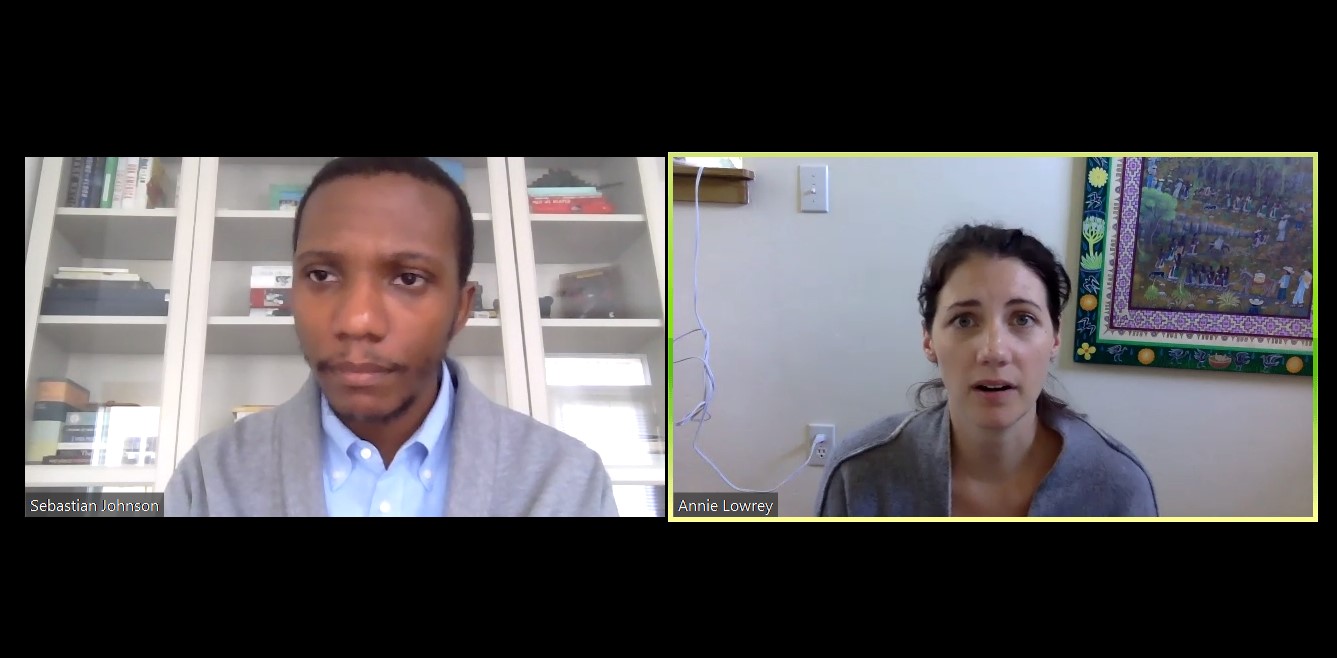The COVID-19 pandemic has caused policymakers us to rethink approaches to a range of issues, such as healthcare, welfare and education. Now that millions of Americans are receiving direct cash transfers as part of recently passed coronavirus stimulus packages, the potential of a universal basic income (UBI) — in which the government would provide every American with a minimum income regardless of their income or employment status — has come to the forefront of policy debate during the pandemic.
Though UBI enjoyed some notoriety during Andrew Yang’s presidential campaign, it has not been explored much as a potential policy in the U.S. prior to the pandemic. Nor has it been fully implemented in any country.
On Thursday, April 23, UBI was the central topic of conversation during “Does a Monthly Check to All Americans Make Sense Even Without a Pandemic?,” a webinar hosted by Future Tense in partnership with Slate, New America, and Arizona State University. Annie Lowrey, staff writer for The Atlantic and author of "Give People Money: How a Universal Basic Income Would End Poverty, Revolutionize Work, and Remake the World," led the webinar alongside writer and philanthropic strategist Sebastian Johnson.
Lowrey and Johnson discussed whether UBI should be implemented in the U.S., how it could be structured, and how it could be implemented.
“UBI isn’t really a welfare policy, it’s an insurance policy,” Lowrey explained. “It’s meant to be there as a buffer to help people through all sorts of circumstances.”
Left to right: philanthropic strategist Sebastian Johnson and Annie Lowrey, staff writer for The Atlantic and author of "Give People Money: How a Universal Basic Income Would End Poverty, Revolutionize Work, and Remake the World."
Lowrey added that one-time checks with a minimum amount of money can be helpful, but they do not give everyone the insurance they need to cover the cost of living.
Johnson added that the pandemic has revealed an urgent need for stronger secure social safety nets, and said that policymakers will need to consider how to implement financial relief policies even after the pandemic ends.
“The pandemic has really exposed the precarious nature of work and our economy that has always been there,” Johnson said. “There is a lot of essential work that is not valued by the economy, and we need to have a social way we can value this work and put a fair dollar amount on it.”
Johnson also noted that, politically, it makes sense for lawmakers to support UBI, since opinion polls indicate that most Americans — across the political spectrum — support direct cash transfers. For politicians, it will come down to whether they have the will to implement such a system.
“People understand, in this moment of crisis, that there’s going to need to be some level of solidarity and that we’re all in this together,” Johnson said. “I hope that this sentiment is part of the way in which our political conversation is changed after this crisis.”
Lowrey and Johnson acknowledged that a major challenge in implementing UBI is the commonly held belief that there are people who deserve social safety nets and those who do not —a stigma that will be difficult to overcome.
“It’s such a core fundamental belief of how our economy is supposed to work,” Johnson said. “And I think whoever figures out how to break that belief will be our next president.”
Future Tense is a partnership of Slate, New America and Arizona State University that examines emerging technologies, public policy and society. The partnership provides insightful, timely and unexpected analysis at the intersection of technology and society through written commentary and live events in Washington, D.C. and beyond.
More Law, journalism and politics

New First Amendment Academy empowers citizens with knowledge about 5 core freedoms
According to a 2024 survey, there is widespread misunderstanding among many Americans around the nuances of the First Amendment.The survey, “The First Amendment: Where America Stands,” revealed that…

Drones are soaring, but privacy protections lag behind, says ASU expert
Over the past few decades, drones have evolved from military tools into AI-powered technology used by everyone from corporate giants like Amazon and Walmart to videographers, photographers and law…

ASU center works to restore trust in foundations of democracy
A new report from the Center for American Institutions at Arizona State University highlights the lack of trust the public has in the judicial system."The Politicization of Our Courts," released this…

